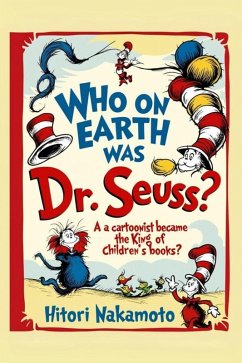Theodor Seuss Geisel was never supposed to be a household name. If you had encountered him in the early 1920s, a Dartmouth graduate who liked to doodle and had an idiosyncratic sense of humor, you could be forgiven for assuming he was a magazine illustrator. Or, if you knew him as a man-child, or even as an adman, you'd probably think of him as your coked-up copywriter with a weakness for nonsense rhymes. And here, somehow, was this man - who never had children, who hated being around them in large groups and who once said that he wrote books for "people" rather than "kids" - the lone voice of children in America. The journey of how that happened is not linear. It's not the story of a boy with a dream, who studied children's literature and worked his way up the publishing ladder. It's more like a series of odd bounces-a fluke, a rejection, a dare-that collectively reshaped an industry. To understand Dr. Seuss is to understand how, in the American tradition, genius often hides behind whimsy.
Dieser Download kann aus rechtlichen Gründen nur mit Rechnungsadresse in A, B, BG, CY, CZ, D, DK, EW, E, FIN, F, GR, HR, H, IRL, I, LT, L, LR, M, NL, PL, P, R, S, SLO, SK ausgeliefert werden.









